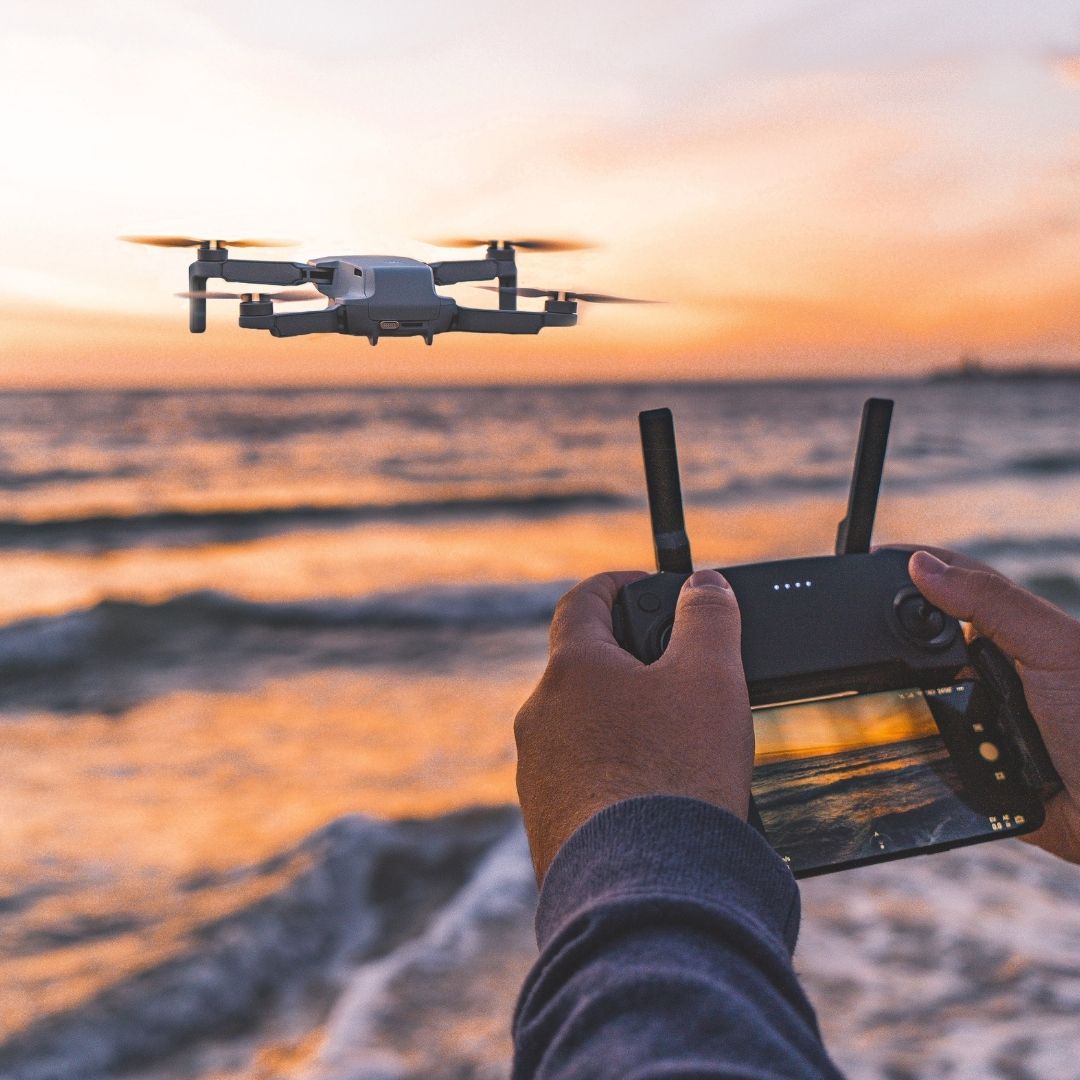Author: Beck Partners This post originally appeared on Beck Blog – Beck Partners and is republished with permission. Find out how to blog with us on theBrokerList.

A growing colony of recreational drones is taking over our skies. There are millions of them. Literally, millions.
The Federal Aviation Administration (FAA) reported receiving nearly 700,000 registrations in 2016, but that number falls far short of the 2.8 million drones sold that year to U.S. hobbyists who often fail to register them. The FAA predicts that registrations will number 7 million by 2020, but who knows how many more will actually be flying. Recreational drones have exploded in popularity, and you can’t escape the growing buzz.
More drones mean more drone incidents. We’ll see more headlines like, “Drone strike! Our photographer injured by TGI Friday’s mistletoe copter,” or, “Watch a chimp knock down a drone.” Why? Because drones are flown by humans, and humans sometimes do dumb things. In 2016 alone, the FAA reported about 1,800 incidents when drones flew too close to airplanes.
If you’ve purchased a drone, or even if you’re just thinking about it, you’ll want to stay in the good graces of regulators, avoid accidents and ensure that your drone and flying activities are adequately protected by insurance.
What Is a ‘Drone’?
The definition of a drone isn’t always clear. The FAA defines a “drone” as an “unmanned aircraft system (UAS),” and a “UAS” is defined by statute as “an aircraft that is operated without the possibility of direct human intervention from within or on the aircraft.”
Regulations Stacked as High as a Drone Can Fly!
It’s no surprise that drone use is subject to substantial regulation by local, state and federal authorities. The following is a small sample of FAA rules regarding recreational use:
- Fly at or below 400 feet.
- Keep drone within line of sight.
- Drone must weigh less than 55 pounds.
- Never fly near other aircraft or airports.
- Never fly over groups of people or over emergency scenes such as fires or stormrecovery efforts.
Before you send your drone into flight, contact your local law enforcement office for rules, such as no-fly zones, regarding recreational drone use in your community. You can find comprehensive guidance on federal law regarding drone use on the FAA website.
If you’re thinking of using your drone to make money, note that the rules for commercial drone use differ significantly from the rules for recreational use. You can find those rules, too, on the FAA website.
Insurance for Your Drone & Concerns about Its Use
In June 2017, a drone flyer in Silicon Valley crashed his quadcopter into high-voltage power lines. He not only incinerated his drone, but knocked out the lights for some 1,600 people. He fled the mayhem and tens of thousands of dollars in damage he caused, and police requested the public’s help to track him down.
In the event you accidentally cause something bad to happen with your drone, or if your drone sustains damage, the value of good insurance cannot be overstated.
Before you go drone flying, contact your Beck Partners Insurance Agent for detailed information about your insurance coverage, and take our tips into consideration.
“My drone is broken … as is my heart and spirit.”
— Sad hobbyist without drone coverage
Homeowners policy and your drone. You love your drone and don’t want anything bad to happen to it. But should it be damaged or stolen, will your home insurance policy pay for a replacement? Well, that depends on the policy you have. Some home insurance policies will cover a damaged drone in the same manner as any other personal property, while others may provide only limited or no coverage at all.
If your policy does cover damage to your drone, keep in mind that the damage must be caused by a covered peril. A few examples of common covered perils include fire, windstorm, theft or accidentally hitting the drone with your car. Any cause of damage that is not a covered peril, such as flying your drone into the side of a sturdy tree branch or building, would not be covered.
“I was flying my drone and a guy’s house got in the way.”
— Baffled novice operator
Drones can cause serious bodily injury and damage to property. Consider the following scenarios:
- Your teenage son flies his drone into your neighbor’s house, damaging siding and a glass door.
- While at the park, you try to avoid a collision with another drone and accidentally steer yours into a person’s head.
- The camera you mounted onto your drone comes loose, plummets from the sky, and damages a parked car.
Liability claims are serious. If you damage someone’s property, a liability claim could make you responsible for the cost of repairs to that property and its loss of use. If you cause bodily injury to someone, a liability claim could make you responsible for that person’s medical bills, lost wages, and pain and suffering.
In some cases, a liability claim could result in a lawsuit which likely will include expensive legal fees.
Will your home insurance policy cover the cost of such claims? Again, that depends on the policy you have. The rapid increase in drone use over the last few years has caused many home insurers to reevaluate the coverage offered for this exposure. It’s essential that you review your policy’s liability coverage with your Beck Partners Insurance Agent to identify any limitations in coverage before you take your next flight.
If your policy does cover drone-related accidents, consider increasing your limit of liability insurance and adding a personal umbrella insurance policy to further increase your available funds. It’s often possible to significantly increase your limit of liability insurance for little cost.
And if your policy does not cover drone-related accidents, ask your agent about options to obtain this essential coverage.
No pictures, please. Another liability concern for drone pilots is violation of privacy. For example, many drones come equipped with a camera. Consider this scenario:
One of your children flies a drone over a neighbor’s house, takes video of some people in the backyard and posts the video online without permission.
An allegation of the violation of one’s right to privacy is serious. Damages may include trauma as well as reputational harm and recovery. Similar to claims of bodily injury or property damage, claims of personal injury (such as violation of privacy) may be covered by some home insurance policies and not by others. Ask your Beck Partners Insurance Agent about this exposure and how your policy may respond.
Fly Safely
Drones are an awesome technology and using them is a fun hobby if pursued safely. Call your Beck Partners Insurance Agent today, get your insurance in order and go fly those friendly skies!
You can contact us at any of these 3 numbers:
Pensacola: (850) 476-3745
Mobile: (251) 471-4100
Jacksonville: (904) 278-4288



